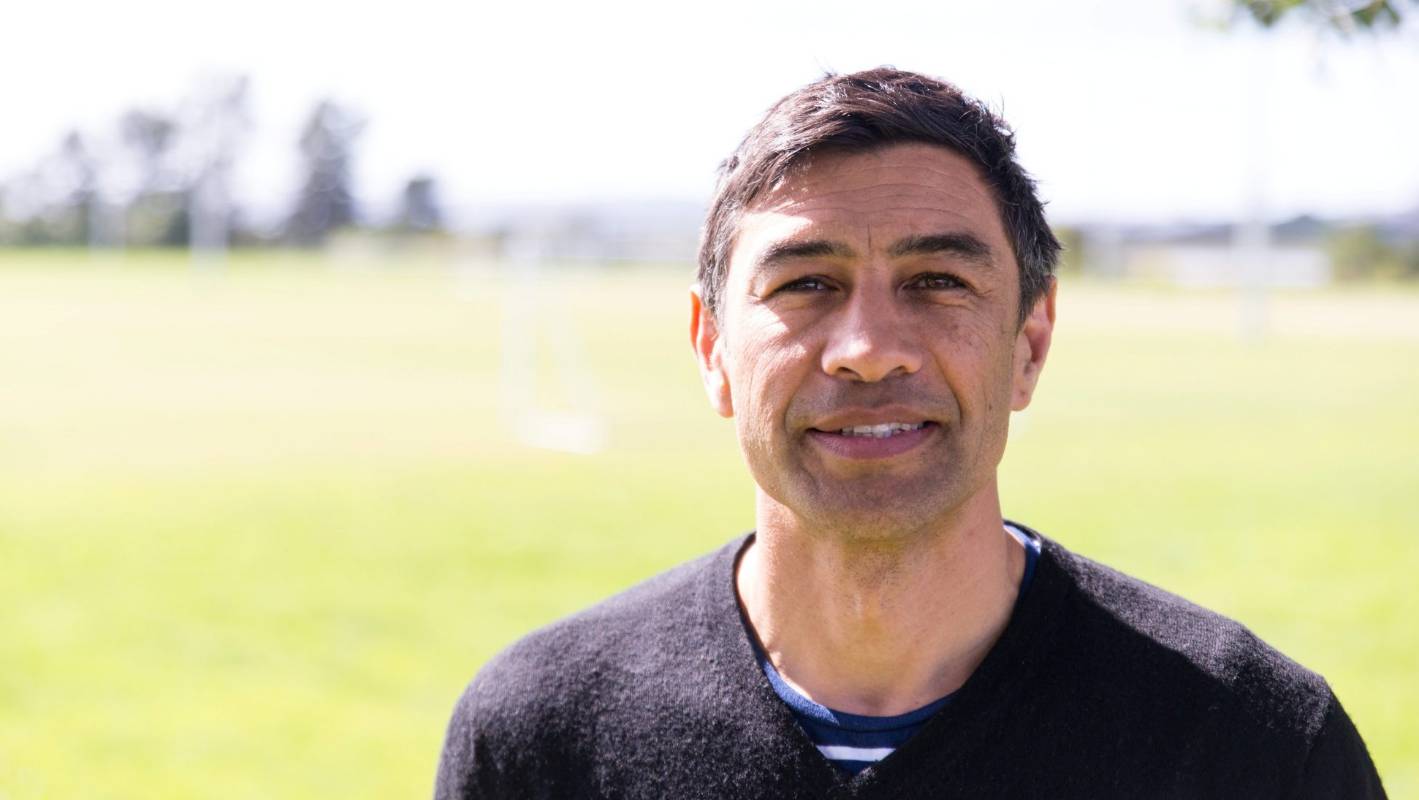Introduction
Richie Barnett, a renowned New Zealand rugby league player, faced a significant challenge that altered the course of his life and career: myalgic encephalomyelitis/chronic fatigue syndrome (ME/CFS). This debilitating condition forced him into early retirement but also led him on a path to recovery and advocacy. Barnett’s journey with ME/CFS is a story of resilience, determination, and hope, offering inspiration to many who face similar battles.
Richie Barnett’s Journey with ME/CFS
Rugby Career and Onset of Illness
Richie Barnett enjoyed a successful career in rugby league, playing for the New Zealand national team and several prominent clubs. Known for his athleticism and leadership, Barnett’s career was on a remarkable trajectory until he was struck by ME/CFS following a viral infection. The onset of extreme fatigue, pain, and other debilitating symptoms forced him to retire from professional sports, marking a significant and challenging transition in his life.
Diagnosis and Early Struggles
Diagnosing ME/CFS can be complex and often involves the exclusion of other medical conditions. Barnett experienced a prolonged period of uncertainty and frustration as he sought answers for his persistent fatigue and other symptoms. Receiving a diagnosis of ME/CFS marked the beginning of a challenging journey to manage and eventually overcome the condition.
Understanding Myalgic Encephalomyelitis (ME/CFS)
What is ME/CFS?
Myalgic encephalomyelitis (ME), also known as chronic fatigue syndrome (CFS), is a chronic, debilitating illness characterized by severe fatigue that does not improve with rest. It often follows a viral infection and can significantly impair daily functioning and quality of life.
Common Symptoms
- Severe Fatigue: Persistent exhaustion that worsens with physical or mental activity and does not improve with rest.
- Post-Exertional Malaise (PEM): A significant worsening of symptoms following physical or mental exertion.
- Sleep Problems: Unrefreshing sleep, insomnia, or other sleep disturbances.
- Cognitive Difficulties: Issues with concentration, memory, and cognitive processing, often referred to as “brain fog.”
- Muscle and Joint Pain: Unexplained muscle pain and joint pain without swelling or redness.
- Headaches: New or worsening headaches.
- Sore Throat and Swollen Lymph Nodes: Recurring sore throat and tender lymph nodes.
Richie Barnett’s Battle with Symptoms
Daily Life Challenges
Transitioning from a high-performing athlete to living with ME/CFS was profoundly challenging for Barnett. Tasks that were once routine became insurmountable obstacles. The severe fatigue and other symptoms significantly impacted his ability to engage in daily activities and maintain an active lifestyle.
Mental and Emotional Impact
The chronic nature of ME/CFS also took a toll on Barnett’s mental and emotional well-being. The drastic change in his life, coupled with the invisible nature of the illness, led to feelings of frustration, isolation, and depression. The lack of public understanding and support for ME/CFS added to the emotional burden he carried.
Treatment and Management Strategies
Medical Treatments
- Medications: There is no specific cure for ME/CFS, but various medications can help manage symptoms. These may include pain relievers, sleep aids, and antidepressants to improve sleep and mood.
- Cognitive Behavioral Therapy (CBT): CBT can help patients develop coping strategies to manage the psychological impact of ME/CFS.
Lifestyle Modifications
- Pacing: Pacing involves balancing periods of activity with rest to avoid triggering post-exertional malaise. This method helps manage energy levels and prevent symptom flare-ups.
- Healthy Diet: Maintaining a balanced diet rich in essential nutrients can support overall health and energy levels.
- Gentle Exercise: Low-impact exercises, such as stretching and yoga, can help maintain physical health without exacerbating symptoms. Exercise routines should be tailored to individual energy levels and capabilities.
- Sleep Hygiene: Establishing a regular sleep schedule and creating a restful sleep environment can help improve sleep quality.
Alternative Therapies
- Acupuncture: Some patients find relief from symptoms through acupuncture, which may help improve energy levels and reduce pain.
- Massage Therapy: Regular massages can help alleviate muscle tension and promote relaxation.
- Mindfulness and Meditation: Practices such as mindfulness meditation can help manage stress and improve mental clarity.
Richie Barnett’s Recovery and Advocacy Efforts
Path to Recovery
Barnett’s journey to recovery involved a combination of medical treatments, lifestyle changes, and alternative therapies. Through careful management of his symptoms, gradual increase in physical activity, and maintaining a positive mindset, Barnett has been able to regain much of his health and vitality. His recovery serves as a beacon of hope for many others battling ME/CFS.
Raising Public Awareness
Richie Barnett has used his platform to raise awareness about ME/CFS. By sharing his personal experiences and the challenges he faced, he has helped to shed light on the condition and foster greater understanding and empathy among the public.
Supporting Research and Education
Barnett’s advocacy extends to supporting research and education initiatives aimed at better understanding ME/CFS. He emphasizes the need for more scientific research to uncover the underlying causes of the condition and develop effective treatments.
Living with ME/CFS: Insights from Richie Barnett
Adapting to Limitations
Barnett has had to make significant adjustments to his lifestyle to manage his symptoms effectively. This includes prioritizing rest, avoiding activities that trigger symptoms, and finding a balance between personal commitments and health needs.
Maintaining a Positive Outlook
Despite the challenges, Barnett maintains a positive outlook. His resilience and determination to live a fulfilling life, despite ME/CFS, serve as an inspiration to others facing similar battles. He continues to advocate for better understanding and support for those living with chronic illnesses.
FAQs
What led to Richie Barnett developing ME/CFS?
Richie Barnett developed ME/CFS following a viral infection. The condition significantly impacted his life and forced him to retire from his promising rugby league career.
How does Richie Barnett manage his ME/CFS symptoms?
Barnett manages his symptoms through a combination of medical treatments, lifestyle changes, and alternative therapies. This includes pacing, maintaining a healthy diet, incorporating gentle exercise, and practicing mindfulness.
What are the main symptoms of ME/CFS?
The main symptoms of ME/CFS include severe fatigue, post-exertional malaise, sleep problems, cognitive difficulties, muscle and joint pain, headaches, and recurring sore throat and tender lymph nodes.
Can ME/CFS be cured?
There is currently no cure for ME/CFS, but symptoms can be managed effectively through a combination of treatments and lifestyle modifications. Research continues to seek better understanding and effective treatments for the condition.
How has Richie Barnett’s openness about ME/CFS impacted public awareness?
Barnett’s openness has significantly raised public awareness about ME/CFS, helping to foster greater understanding and empathy for those living with this condition.
What lifestyle changes has Richie Barnett made to manage his ME/CFS?
Barnett has adapted his lifestyle by prioritizing rest, avoiding activities that trigger symptoms, maintaining a healthy diet, incorporating regular, gentle exercise, and practicing mindfulness and meditation.
Conclusion
Richie Barnett’s journey with myalgic encephalomyelitis/chronic fatigue syndrome highlights his resilience and determination to overcome the challenges posed by this debilitating condition. Through his advocacy and personal experiences, he has raised much-needed awareness about ME/CFS, inspiring others to seek help and manage their symptoms effectively. By adopting a comprehensive approach that includes medical treatments, lifestyle changes, and alternative therapies, Barnett continues to lead a fulfilling life, demonstrating that with the right strategies, it is possible to live well with ME/CFS.

Click Here to Visit the Store and find Much More….
For More Information Related to Fibromyalgia Visit below sites:
References:
Fibromyalgia Contact Us Directly
Click here to Contact us Directly on Inbox
Official Fibromyalgia Blogs
Click here to Get the latest Chronic illness Updates
Fibromyalgia Stores









